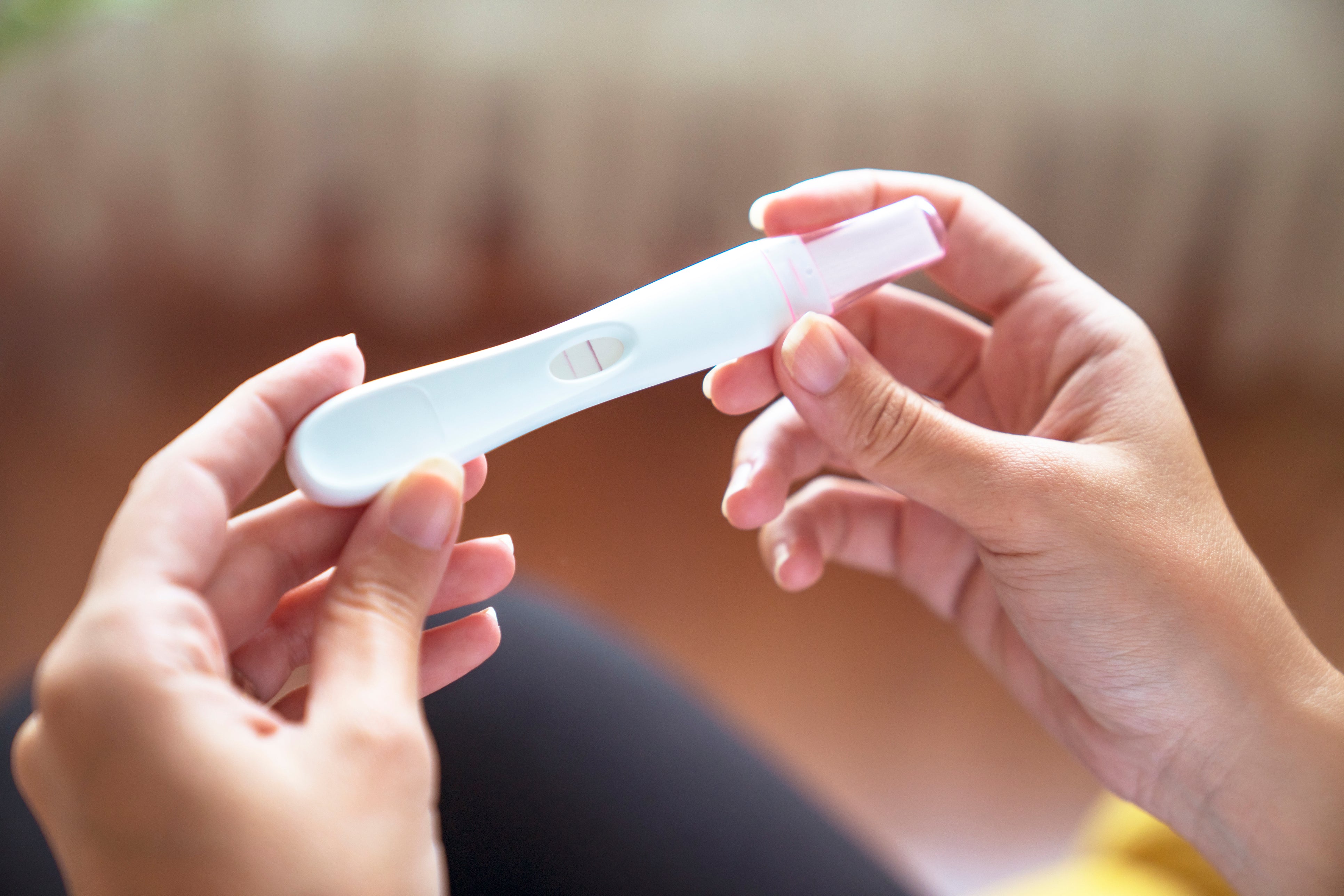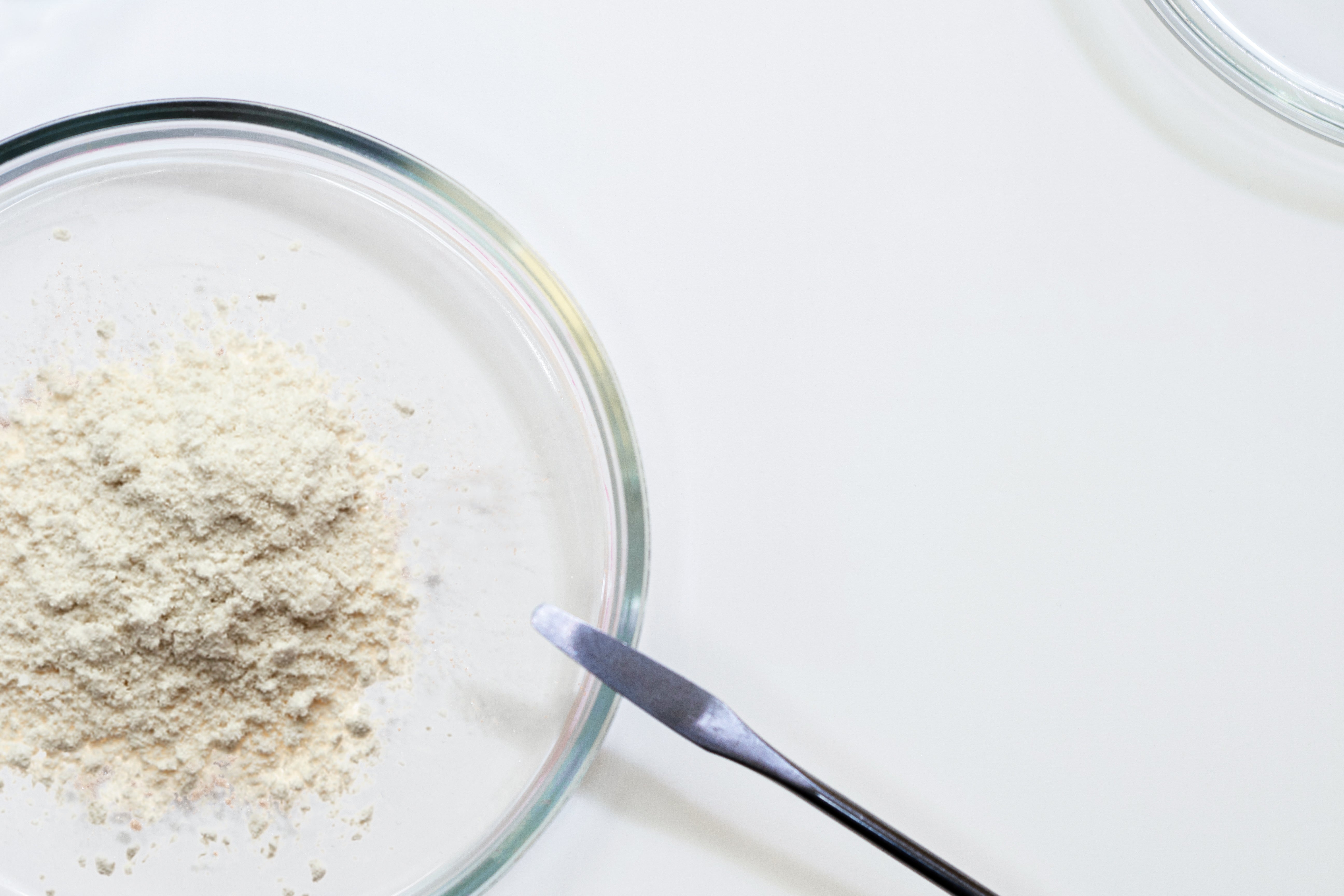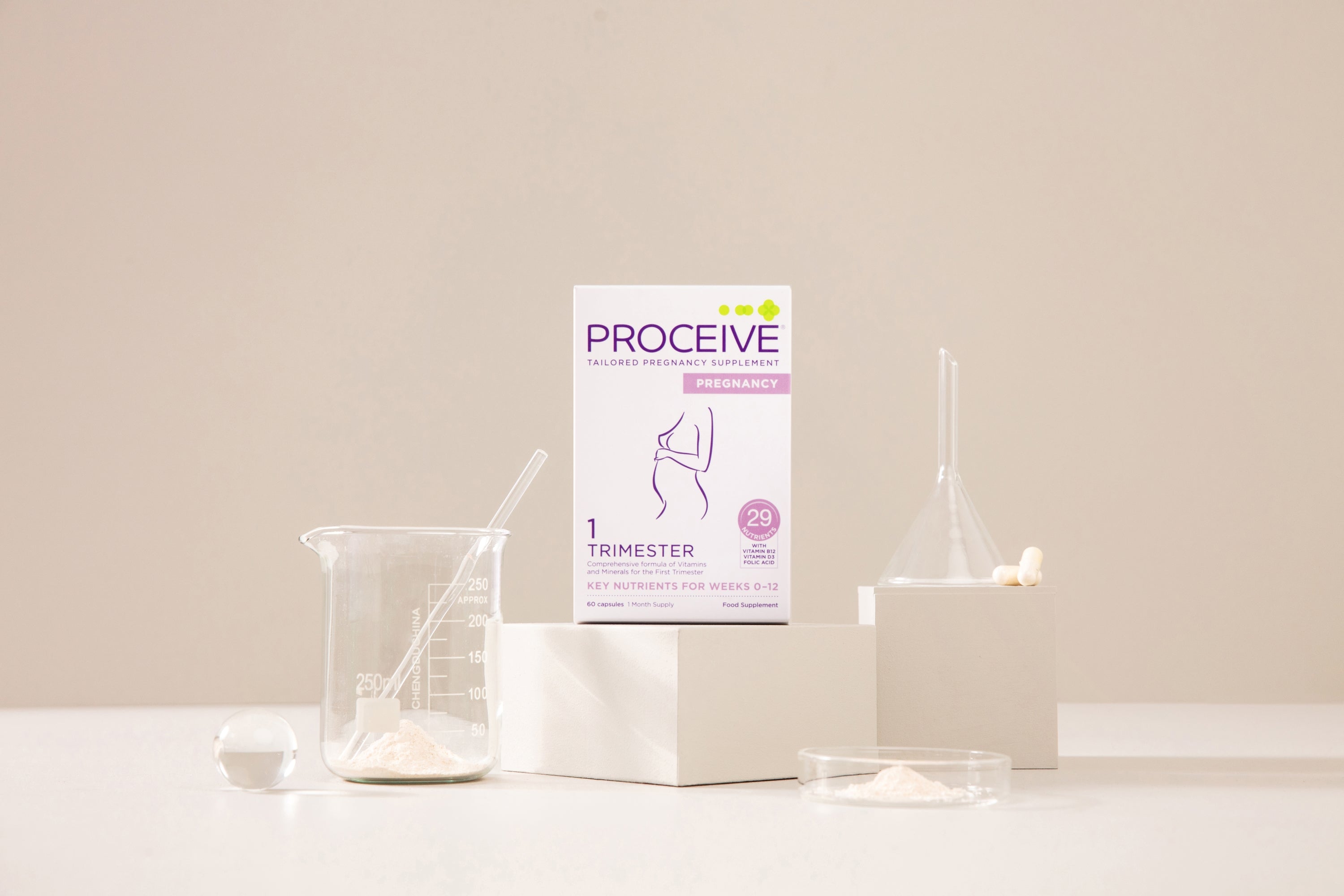
What to Expect in the First Trimester?
The first trimester begins on the first day of your last period and lasts until the end of week 12. This is the beginning of your pregnancy and is a very important time for its development. Even though it may not seem like much is happening in the early days of pregnancy, the most dramatic changes and development happen during the first trimester as the embryo implants itself into the uterine wall.
A sac filled with amniotic fluid, called the amniotic sac, surrounds the foetus throughout the pregnancy. The amniotic fluid is liquid made by the foetus and protects the foetus. It also helps to regulate the temperature of the foetus.
The placenta is an organ shaped like a flat cake that only grows during pregnancy. It attaches to the uterine wall with tiny projections called villi. Foetal blood vessels grow from the umbilical cord into these villi, exchanging nourishment and waste products with the mother's blood.
The umbilical cord is a rope-like cord connecting the foetus to the placenta. The umbilical cord contains two arteries and a vein, which carry oxygen and nutrients to the foetus and waste products away from the foetus.
During the first 8 weeks, a foetus is called an embryo. The embryo develops rapidly and by the end of the first trimester it becomes a foetus that is fully formed, on average only 3 to 4 inches in length. That is a lot of growing in the first 12 weeks!
Make sure to look after yourself during this time. It’s common to experience morning sickness, cramps, tender breasts, tiredness and fatigue during the first trimester. You may need to rest more or eat smaller meals during this time. Or you might be one of the lucky ones who doesn’t feel any of these symptoms at all.
Proceive® provides nutrition for you and your baby at optimum levels tailored for the first trimester. It includes folic acid in the L-Methylfolate form. Folic acid is recommended for the first 12 weeks of pregnancy.

For Your Baby
Folic acid (L-Methylfolate)
Contains 400ug in it’s natural form to support greater absorption. Folic acid contributes to maternal tissue growth during pregnancy.
Cell Division
This is a period of rapid growth. Vitamin B12 has a role in the process of cell division.
Bone Development
Calcium and Vitamin D support the maintenance of normal bones.
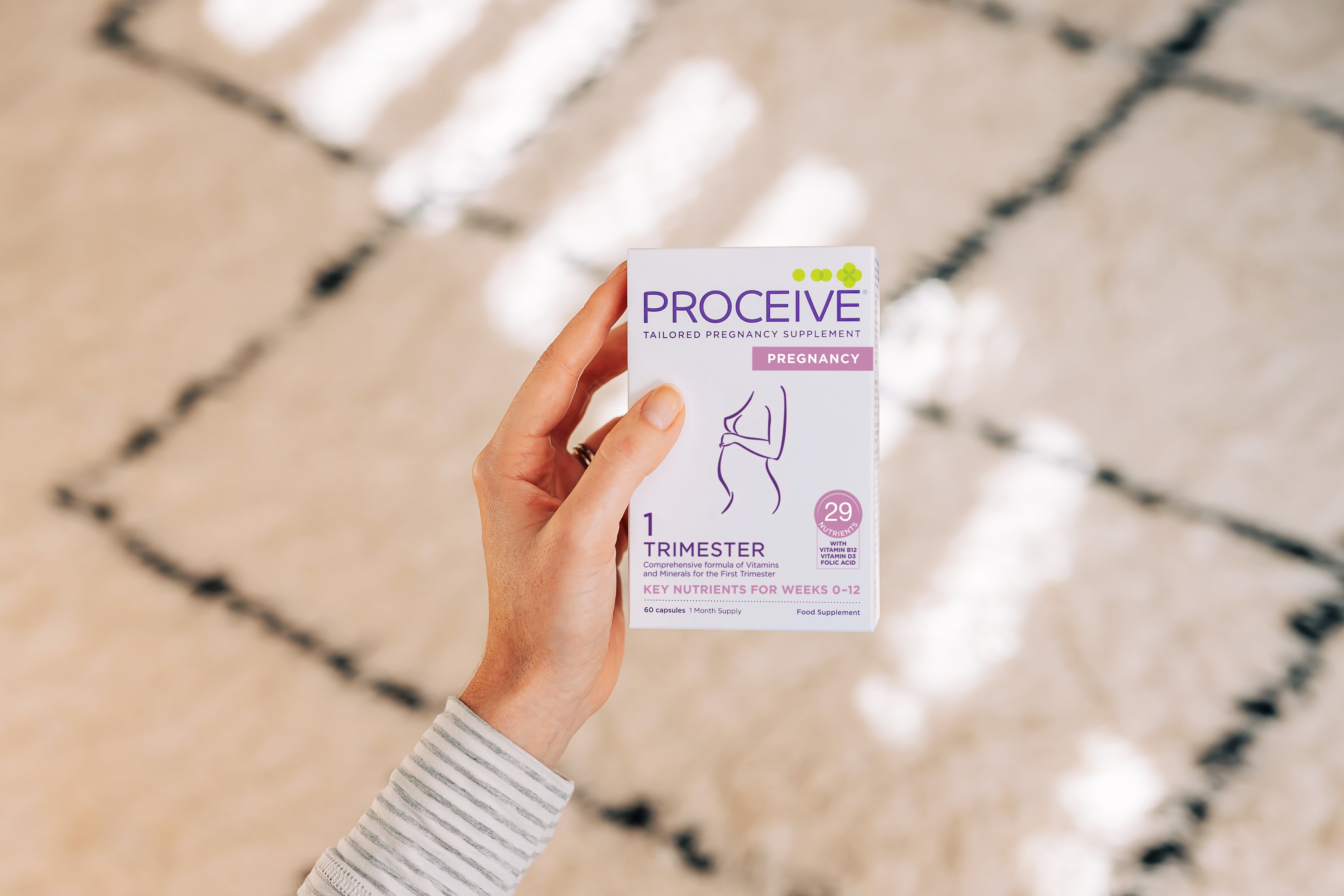
For You
Hormonal Activity
Vitamin B6 contributes to the regulation of hormonal activity.
Energy Support
Vitamin B1 contributes to normal energy yielding metabolism.
Tiredness
Iron, Magnesium and Vitamin B2 contribute to a reduction in tiredness and fatigue.

For You and Your Baby
Our Omega 3 product can be taken for additional nutritional benefit for you and your baby.
Eyesight
Maternal intake of DHA contributes to the normal development of the eye of the foetus and breastfed infants.
Brain Development
Maternal intake of DHA contributes to the normal brain development of the foetus and breastfed infants.
Heart
Omega 3 EPA and DHA contribute to the normal function of the heart.
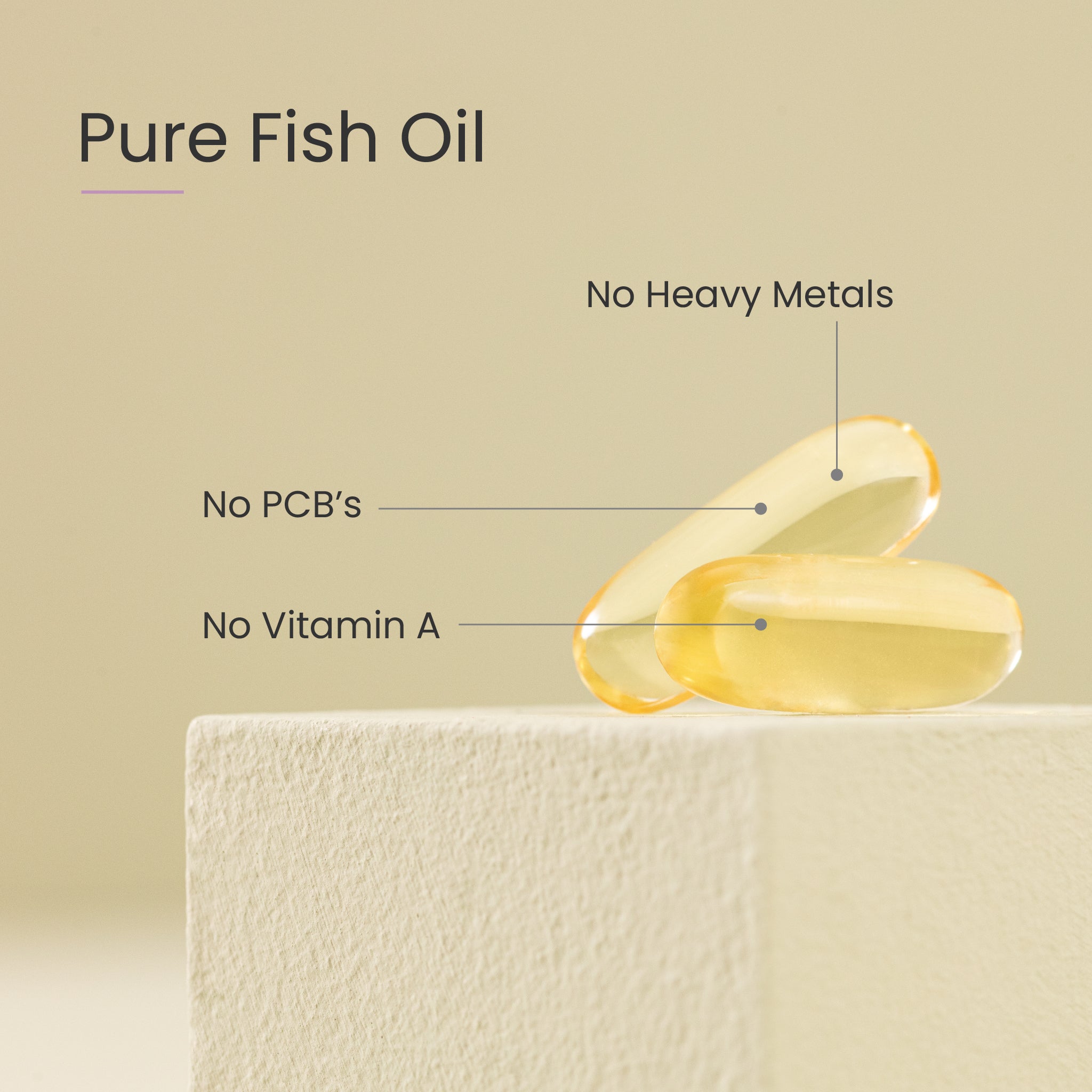
Omega 3
Omega 3 fatty acids are considered essential fatty acids (EFA’s). This means they are necessary for human health, but the body can’t make them - we have to consume them through food.
EPA (eicosapentaenoic acid) and DHA (docosahexaenoic acid) are two types of Omega 3 fatty acids that are abundant in oily fish, shellfish, and some algae. The body needs EPA and DHA omega 3’s to develop and function optimally at every stage of life. They are particularly important during conception, pregnancy and breastfeeding.









